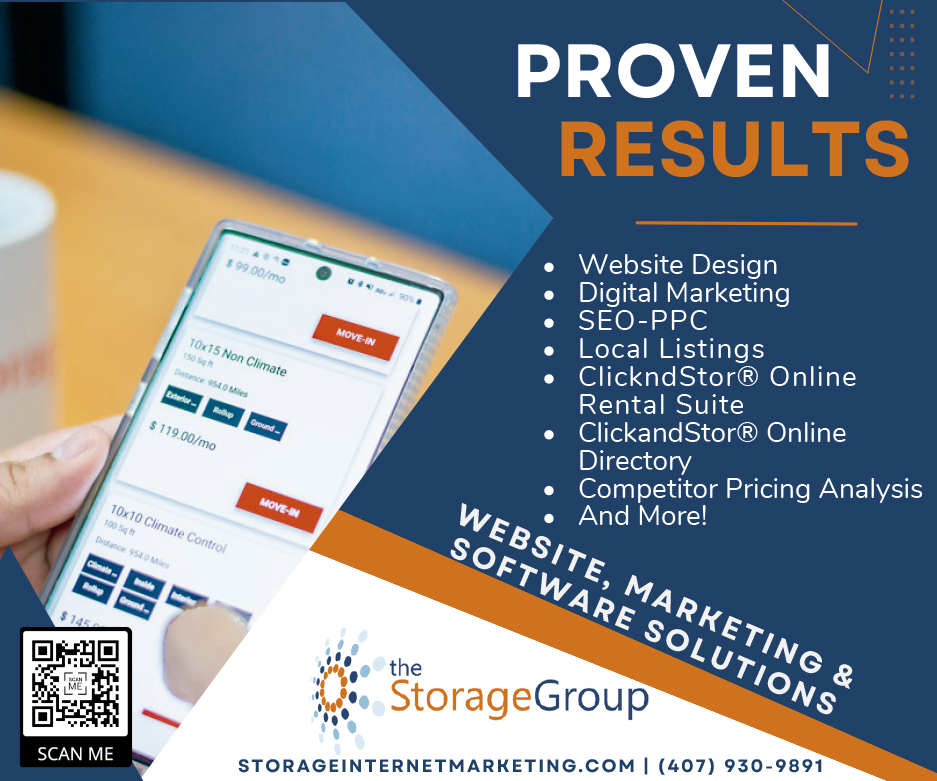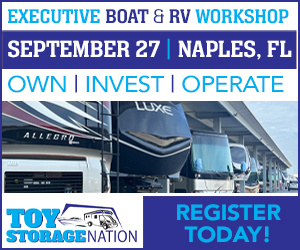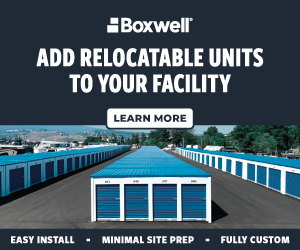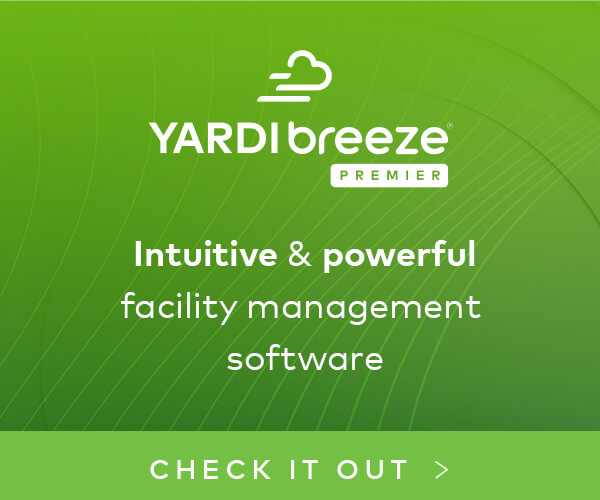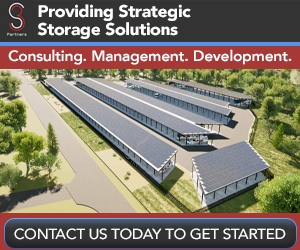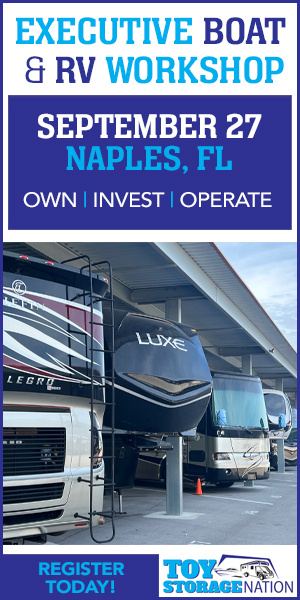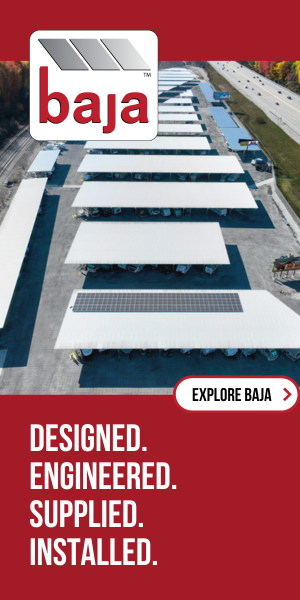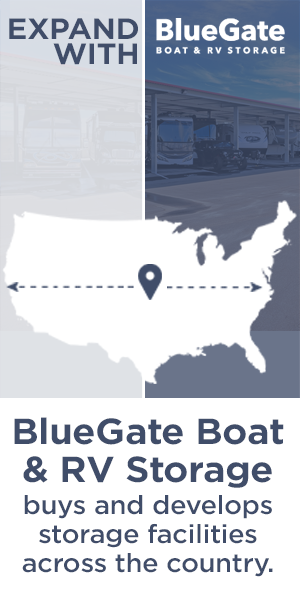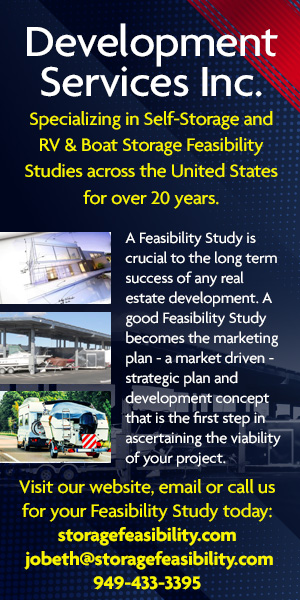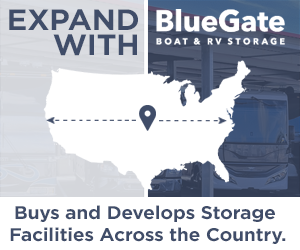Part one in this two-part series provides an overview of the RV and boat storage industry, due diligence, costs, establishing a legal entity, registering your business, setting up operations/accounting and obtaining licenses and permits.
The RV storage business is growing at a rapid rate. In 2022 the market hit $48 billion, with a projected compound annual growth rate (CAGR) of 4.0%. This could bring the market to more than $80 billion by 2035.
With more families and individuals investing in RVs for leisure and travel, demand for secure and accessible storage facilities is on the rise. This creates an attractive opportunity for entrepreneurs interested in breaking into the industry.
This guide will provide insight on how to start an RV storage business. Topics include market research, competitive analysis, registering an EIN, obtaining business insurance and more. Here’s everything you need to know about starting a boat and RV storage business.
1. Conduct RV Storage Market Research
Market research is essential to starting a self-storage facility. Boat storage requires detailed information to create a successful business plan. Primary research you produce yourself and secondary research you obtain through a third party, both come in handy.
Here are some of the details you’ll learn through market research.
- With more RVs on the road, demand for specialized storage facilities is surging.
- There are over 4,400 RV storage businesses in the US, and individual facilities are running near full capacity.
- Prime locations boast 95% occupancy rates.
- Favorable demographic trends also bode well for the industry.
- RV travel appeals strongly to Baby Boomers, and this large demographic segment is entering the prime RV ownership age.
- There are over 73 million Boomers in the US, and Boomers account for over 60% of current RV owners.
- For entrepreneurs interested in starting an RV storage business, the market opportunity is substantial.
- Success depends on picking the right location, offering competitive rates and high-quality facilities, and implementing savvy marketing.
- In an industry growing at over 5% annually, new entrants have the potential to establish a thriving enterprise serving RV owners’ storage needs.
Though launching any new business requires significant upfront investment and effort, RV storage stands out as an attractive and promising sector in today’s recreational vehicle economy.
2. Analyze the Competition
Thoroughly analyzing the competition is crucial when starting an RV storage business. This involves assessing both local brick-and-mortar competitors and evaluating a wider online presence. Competitive analysis helps a new boat storage business determine important details like the types of storage being provided locally, prices charged by other boat storage businesses, and more.
Some of the ways to learn about your competitors include:
- For existing storage facilities in your area, visit their locations in person to gauge factors like security, layout, amenities offered, and occupancy rates.
- Note prices for different unit sizes, any move-in specials or discounts, and the condition of the grounds.
- Check review sites like Yelp to see customer feedback and monitor it regularly.
- Drive by at night to evaluate lighting and activity levels indicating demand. This on-the-ground reconnaissance gives key insights into local competitors’ strengths and weaknesses.
- Analyzing online presence is equally important.
- Search for local storage businesses on Google Maps and assess how many reviews they have, along with average ratings.
- Check their websites for professionalism, ease of use, and extent of information provided.
- See if they utilize SEO effectively to rank well for local searches.
- Look for their listings on directory sites like Yellow Pages to evaluate citation consistency.
- Ensure they have profiles on major platforms like Google Business and see how many followers or reviews they have accrued.
- Monitoring online visibility provides a comprehensive view of competitors beyond just physical facilities.
Combining insights from on-the-ground observation and web monitoring paints a complete picture of competing RV storage offerings in your market. Regularly analyzing competition is essential even after opening your facility, to further refine your business plan and stay ahead of shifts in the local market.
3. Costs to Start an RV Storage Business
Keep in mind, starting an RV storage business requires startup and ongoing expenses. Here, we’ll break down some of the common costs you’ll encounter.
Start-up Costs
When launching an RV storage facility, there are a variety of start-up costs to consider.
- One of the largest will be purchasing or leasing a piece of land for the storage lot, which could range from $100,000 to over $1 million.
- Site development including grading the land, installing roads, fencing the perimeter, and adding lighting could cost $200,000 or more.
- Constructing the storage space for RV and boat storage will also require significant capital. Steel storage units typically run $50-$100 per square foot, while paved storage pads can be $15-$30 per pad space.
- A medium 50,000-square-foot storage facility would therefore need around $3-$5 million just for storage structures.
- Design and permitting fees need to be accounted for as well, which could cost $50,000+.
- Other start-up costs will include an office and staff facilities (approximately $150,000 if constructed on site).
- Office equipment and furnishings ($20,000)
- Security system ($50,000 for gate access, cameras, etc.).
- An insurance policy ($5,000 annually), and legal fees related to permits and contracts ($10,000).
- Website design and hosting ($3,000), and miscellaneous costs like signs and marketing materials ($10,000).
These are some of the common startup costs you’ll encounter as you create an RV storage business plan. Buying the boat storage facility makes up the bulk of this cost.
Ongoing Costs
- Mortgage or rent payments
- Property tax
- Utilities like electricity, water, telephone/internet, etc. ($2,500 per month or more depending on utility rates and facility size)
- Waste disposal ($500 monthly)
- Payroll for managers and staff ($4,000+ monthly assuming 2-3 employees)
- Insurance premiums ($400 monthly)
- Minor repairs and maintenance ($1,500 per month)
- Office supplies and miscellaneous ($500 monthly)
Annual ongoing costs
- Major maintenance or repairs (budget $20,000 annually)
- Property taxes if not escrowed into a mortgage ($30,000 depending on location and value)
- Income taxes
- Marketing and advertising ($6,000-$12,000 annually)
- Accounting services ($5,000 annually)
- Legal services retainer ($3,000 annually)
Careful financial planning and cost control will be essential to maintain profitability. But in a rapidly growing industry like RV storage, a strategically sited and priced facility in the right market can produce over $500,000 in annual revenue at good occupancy rates, allowing for solid returns on the initial facility investment.
4. Form a Legal Business Entity
When starting an RV storage business, choosing the right legal structure is an important decision. The four main options each have advantages and drawbacks to weigh.
Sole Proprietorship
A sole proprietorship is the simplest structure. There is little paperwork, and the business is not considered separate from the owner. However, the owner has unlimited personal liability for debts and claims, which poses risks for an RV storage business vulnerable to property damage or customer injury lawsuits.
Partnership
Forming a general partnership shares liability across partners and allows the pooling of resources. However partnerships can experience internal disputes, and remaining partners still bear responsibility if one partner causes debts. Partnerships must also file separate tax returns.
Limited Liability Company (LLC)
A limited liability company (LLC) provides personal liability protection like a corporation with the pass-through taxation of a partnership. Members are shielded from business debts and claims, losses are passed to members’ returns, and overall paperwork and formalities are simpler than in a corporation.
Corporation
A corporation fully separates the business from owners and avoids double taxation, but requires extensive recordkeeping and administration. The complex setup process and less flexibility in issuing dividends or stock makes a corporation unnecessary for most RV storage businesses with a small number of owners.
5. Register Your Business For Taxes
One key legal step for any business is obtaining an Employer Identification Number (EIN), also known as a federal tax ID number, from the IRS. This unique identifier is required for important tasks like opening business bank accounts, applying for licenses, and hiring employees.
RV storage businesses need an EIN even if they do not plan to have employees right away. Self-employed owners still report taxes for the business separately from their returns. An EIN is vital for handling necessary IRS paperwork and tax filings for the company.
Thankfully obtaining an EIN is quick and can be done online via the IRS website here: Apply for an Employer Identification Number (EIN). The online application only takes about 10-15 minutes to complete. You will need to provide basic information like the name and address of the business owner(s), along with details about the company’s ownership structure and operations.
Once submitted, you will receive an EIN immediately that can be used to open business accounts right away. There is no cost to obtain an EIN from the IRS.
In addition to the federal EIN, RV storage businesses will also need to register with their state revenue or taxation department for sales tax and other state business taxes. This can be done on the website of your state’s business services department. Filing fees are generally $50 or less.
6. Setup Your Accounting
Maintaining accurate financial records is crucial for RV storage businesses. With regular transactions and expenses, utilizing accounting software and professional accounting services is highly recommended.
Accounting Software
RV storage involves recurring revenue from monthly rental fees along with various overhead costs. Tracking all of these inflows and outflows meticulously is vital. Rather than error-prone manual methods, small business accounting software like QuickBooks allows easy tracking of income, expenses, account balances, and taxes.
Hire an Accountant
While software provides essential tools, working with a professional accountant is ideal for ensuring full legal compliance and optimized taxes. Services like bookkeeping, payroll, quarterly/annual tax filing, and overall financial statement preparation provide invaluable expertise. Expect fees of $100-$150 per month for bookkeeping.
Open a Business Bank Account
Maintaining completely separate finances for your business and personal life is also key for simplified accounting and avoiding IRS issues. Your storage company should have its own business checking account and credit card used strictly for company expenses.
Apply for a Business Credit Card
Applying for a dedicated business credit card provides spending flexibility and separation from personal finances. Business cards weigh factors like years in business and annual revenue over personal credit scores when setting limits. An ideal starting limit is $5,000 – $10,000.
7. Obtain Licenses and Permits
Starting an RV storage business involves obtaining several important licenses and permits to operate legally and avoid issues. Find federal license requirements through the U.S. Small Business Administration. The SBA also offers a local search tool for state requirements.
At the local level, RV storage facilities require zoning approval and likely a conditional use permit depending on municipal ordinances. Zoning laws for commercial properties dictate allowable businesses for each zone type. Specialized storage can fall under light industrial zoning. Research options in your area and consult zoning officials early when selecting potential sites.
The conditional use permit application involves submitting your business plan, site plans, and often a community impact study. This allows the local zoning board to review how the storage facility may affect neighborhoods. Expect at least two months to move through the application process. Permit fees range from $2,000-$5,000.
Construction permits from the local building department are also necessary for development projects like adding storage structures, gates, fencing, or office space to the property. These permits govern technical specifications for building safety and access compliance.
Don’t forget landscaping and stormwater management approvals as well. Most areas have regulations about controlling drainage, limiting impervious surfaces, and requiring retention ponds for large paved areas like storage lots. Integrate sustainable features like rain gardens or permeable pavements.
Specialized licenses like weigh station operation permits may apply for onsite RV weighing scales. States also often require the registration of security guards or gate attendants checking visitor credentials.
Stay tuned: Part two in this two-part series covers how to obtain business insurance, setting up your office space, sourcing equipment, establishing brand assets, promoting your site within your community, marketing strategies and customer service.
Businessguru.com was founded by Ron Stefanski, a serial entrepreneur and college professor influenced heavily by his father’s relentless pursuit of his own businesses success. At the bold age of 18, he acquired his first business franchise. After earning an MBA, he masterminded a digital media company that swiftly scaled to a seven-figure profit. His reputation as a trusted figure in the entrepreneurial community speaks to his expertise, making him a go-to authority for those looking to bring their business dreams to life.













